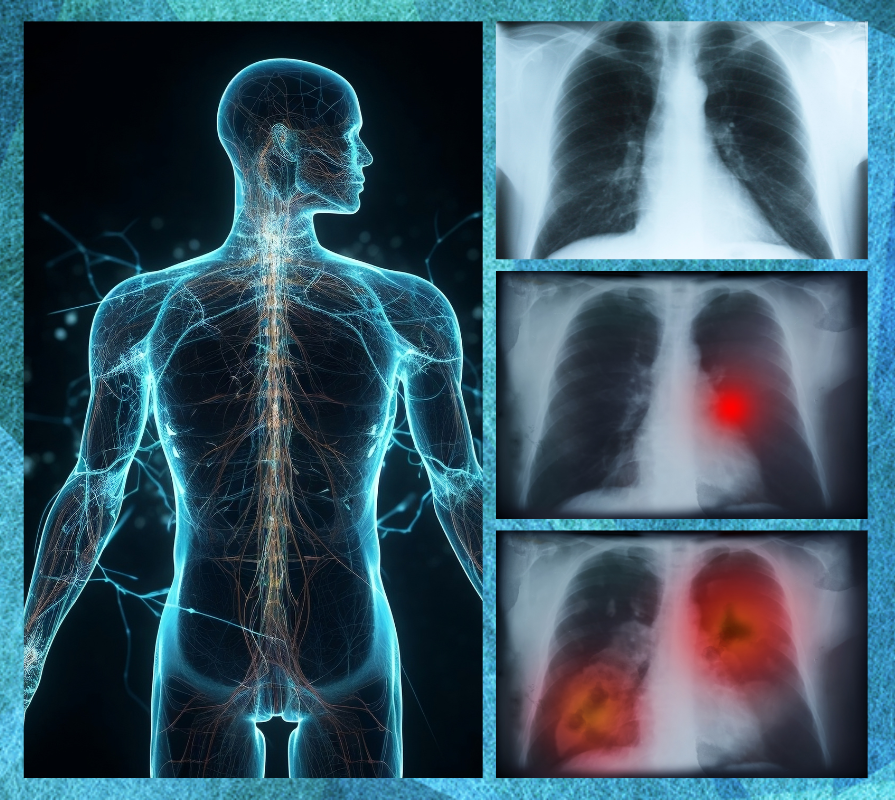
Staging Lung Cancer
Lung cancer staging follows an initial diagnosis via biopsy. This helps your healthcare team determine where cancer cells are, the size of the tumor, and if the cancer has metastasized.
Learn more about lung cancer staging
The first step that your doctor will take is to confirm that a suspicious lump or spot on a scan is in fact a tumor. You will first receive a biopsy – sometimes of the lung, but it may be targeted to other areas of the body.
Once they confirm what the lung cancer is, they must then determine where the lung cancer is – this is part of the staging process. The tests that you will typically receive for staging include:
- CT Scans: X-rays that show shadow
- PET Scans: visualizes where sugars are being taken up by resource-intensive cancer cells
- Brain MRI Scans: more sensitive to cancer that has metastasized; provides the clearest images of soft tissues of the brain
Knowing where cancer cells are – whether they are localized to the lung or have spread further outside the chest cavity – has a major impact on what kind of treatment you will receive. Cancer that is contained within the lung are best treated with thoracic surgery, while cancers that have spread outside the lung are best treated with chemotherapies or other types of therapy.
- Stage 0 Lung Cancer means that the cancer is at a very early stage and has not spread outside the lungs.
- Stage 1 Lung Cancer means that the tumor has spread to the lining of the lung, but not to the lymph nodes or other parts of the body. Depending on the size of the tumor, Stage 1 can be classified as Stage 1A or Stage 1B.
- Stage 2 Lung Cancer means that the tumor is larger than in Stage 1 and has spread to nearby lymph nodes or tissues, but not distant organs. Depending on the size of the tumor and where it’s found, Stage 2 can be classified as Stage 2A or Stage 2B.
- Stage 3 Lung Cancer means that the tumor has become too difficult to remove via surgery. Depending on size, location, and how far it has spread, Stage 3 can be classified as Stage 3A, 3B, or 3C.
- Stage 4 Lung Cancer means that the cancer has metastasized outside the lung and the chest to other areas of the body.
Typically, the stage that your cancer has been diagnosed with is how you will refer to your diagnosis. While it’s true that lung cancer can become more invasive by metastasizing to other parts of the body, this is typically referred to as recurrent or metastatic lung cancer and not stage 4 lung cancer.
Currently, molecular biomarkers are not part of the criteria for staging lung cancers. However, knowing your biomarkers can make a huge difference on whether you receive the most effective treatment possible. As biomarker testing becomes more widespread, we are hopeful that biomarkers will become a routine part of lung cancer staging.
Learn more about lung cancer biomarker testing with the Hope With Answers video series.

